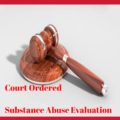Definition: Abuse Liability refers to the propensity of a particular psychoactive substance to be susceptible to abuse, defined in terms of the relative probability that use of the substance will result in social, psychological, or physical problems for an individual or for society. Under international drug control treaties (see conventions, international drug) WHO is responsible for determining the abuse liability and dependence potential, as distinct from therapeutic usefulness, of controlled substances. See also: abuse; dependence potential; harmful use
abuse of non-dependence-producing substances (F55) Defined in ICD-I0 as repeated and inappropriate use of a substance which, though the substance has no dependence potential, is accompanied by harmful physical or psychological effects, or involves unnecessary contact with health professionals (or both). This category might more appropriately be termed “misuse of non- psychoactive substances” (compare misuse, drug or alcohol). In ICD-I0, this diagnosis is included within the section “Behavioural syndromes associated with physiological disturbances and physical factors” (F5O-F59).
A wide variety of prescription drugs, proprietary (over-the-counter) drugs, and herbal and folk remedies may be involved. The particularly important groups are
(1) psychotropic drugs that do not produce dependence, such as antidepressants and neuroleptics;
(2) laxatives (misuse of which is termed the “laxative habit”);
(3) analgesics that may be purchased without medical prescription, such as aspirin (acetylsalicylic acid) and paracetamol (acetaminophen);
(4) steroids and other hormones;
(5) vitamins; and
(6) Antacids.
These substances do not typically have pleasurable psychic effects, yet attempts to discourage or forbid their use are met with resistance. Despite the patient’s strong motivation to take the substance, neither the dependence syndrome nor the withdrawal syndrome develops.These substances do not have dependence potential in the sense of intrinsic pharmalogical effects, but are capable of inducing psychological dependence.



